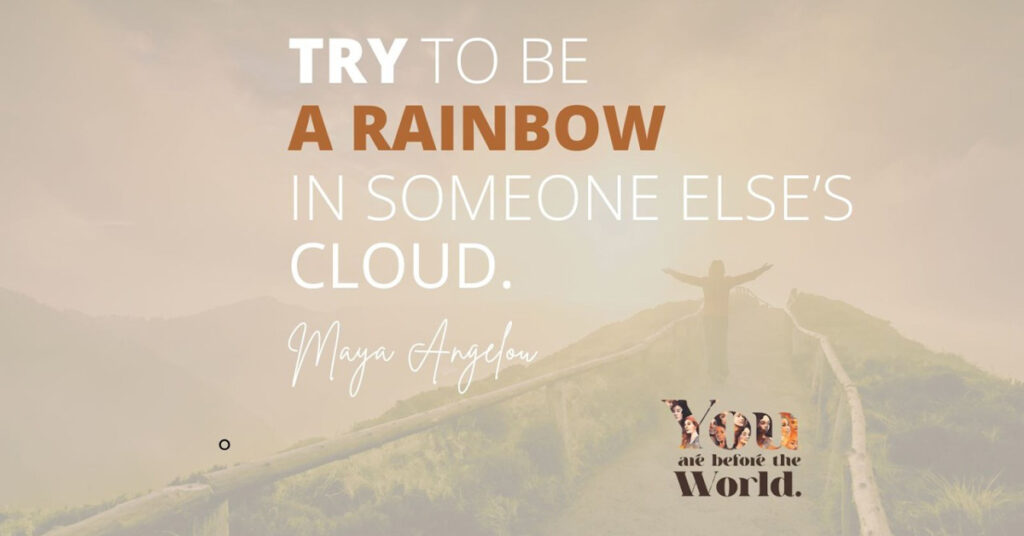On the last day of 2024, I called a former client with whom I really connected but hadn’t spoken to in a while. She’s a consummate helper, having dedicated her career to elevating the unseen, unheard, and unappreciated. I remember marveling at how strategically she approached her work—how incredibly intentional and courageous she was. I knew she’d resigned from her role earlier in the year due to, well…misalignment.
“How are you?” I asked. “Tell me all the things!”
“I’m doing well,” she reported, but there was hesitancy in her voice. “I took a break after leaving my role and invested in myself for six months. It was amazing and so necessary.”
“That’s wonderful,” I replied. Then I paused, because I was waiting for the rest.
“But…” she continued, “I didn’t think it would be so hard to find a job.” There it was.
“I’m realizing that posting my resume on Linkedin and applying to roles won’t cut it. So many are looking for work right now and I’m not breaking through. I feel like someone will have to make a personal connection for me.”
Someone? Ma’am. I am someone!
She knew I had an extensive network, especially in her area of expertise. I’d offered to help in the very beginning when she’d first decided to leave and brokered a connection at that time. Now she needed an “in,” but hadn’t reached out, and I didn’t have to wonder why. I wanted to make myself crystal clear so she’d never again question whether to seek my support.
“Let me just say,” I began, “that I am always here for you. I will always make connections if I can. I will always help you—whether our last conversation was a week ago or a year ago. You never have to wonder if you’re bothering me, because I will never feel that you are.”
It seemed like I was doing too much, but I knew from experience that I most certainly was not. I knew that the narrative my invitation butted up against was strong:
I’ve not checked in lately. They’ll think I’m using them.
I need a shortcut. They’ll think I should do my own heavy lifting.
Networks are precious. They’ll hesitate to tap it just for me.
While I know these thoughts persist, I personally felt none of this as I considered how I might be helpful. And in that moment, it occurred to me that—for all the tall tales I’ve told myself over the years about people not wanting to help me—the truth was likely much more benevolent.
My intentionality about supporting other women, especially when their hard thing is my easy thing, is connected to my own challenges asking for help. It’s ironic that the most helpful people I know seldom ask for help in return…even when the door is opened for them.
Here are five reasons why it can be hard to ask for help:
It makes us feel vulnerable. Asking for help feels like admitting a weakness.
We see ourselves as capable. We’re used to be the person who helps, not the one who needs it.
We don’t want to inconvenience people. Helpers don’t like to cause people trouble or give them extra work.
We’ve had bad experiences in the past. We asked for help before and got snubbed, and don’t want to experience that rejection again.
We are perfectionists. We’re afraid others will assume we’re doing a poor job of helping ourselves.
This resonates when I reflect on my own journey, but there’s more. The responsibility that comes with receiving help can add pressure to an already stressful situation. If someone gives me a hand, I feel I have to take it. If someone opens a door, I feel I have to walk through it. If someone invests in me, I feel I have to generate a return. It’s never easier to rely on your strength alone, but sometimes, it feels safer. An unknown setback is more tenable than a known failure.
But while we stand on the edge of our potential with one hand outstretched and one clenched into a fist behind our backs, the truer story is this:
We’ve all felt weak. We’ve all needed help. We’ve all benefited from someone else’s effort. We’ve all been rejected. We’ve all feared being judged for how we do (or don’t) pursue our purposes.
In this climate, we will need more help, not less. We will need more kindness. More generosity. More intentional support. And it doesn’t have to be at anyone’s expense. If we all do what we can—meaning help when someone else’s hard thing is our easy thing—maybe we can lighten the burden for all of us.
That’s what helpers do.
Tara Jaye Frank
